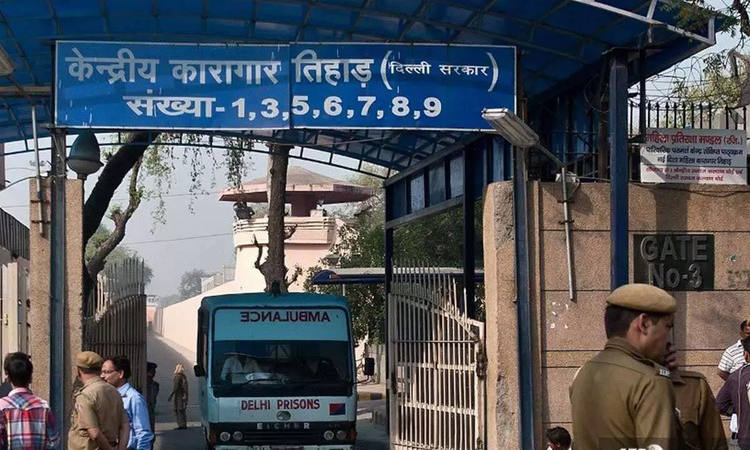- Home
- /
- High Courts
- /
- Delhi High Court
- /
- Existence Of 'Gangs' In Prison With...
Existence Of 'Gangs' In Prison With Access To Weapons Doesn't Reflect Well: Delhi High Court Criticises Jail Authorities Over Inmate's Death
Kapil Dhyani
16 Jun 2025 9:33 PM IST
The Delhi High Court recently took exception to the submission made by Tihar Jail authorities that it is not responsible for the death of an inmate following a clash between 'rival gangs' within the prison.Justice Harish Vaidyanathan Shankar observed that the State owes a duty to ensure the security of the general public, including persons who are incarcerated, and “The fact that, in...
The Delhi High Court recently took exception to the submission made by Tihar Jail authorities that it is not responsible for the death of an inmate following a clash between 'rival gangs' within the prison.
Justice Harish Vaidyanathan Shankar observed that the State owes a duty to ensure the security of the general public, including persons who are incarcerated, and “The fact that, in the present case, such an altercation has transpired and that the two “rival gangs” have had access to weapons or tools by which they have been able to cause injuries to each other, leading to the death of the deceased, does not speak highly of the manner in which the jail authorities have dispensed their duties.”
The Court was dealing with the case of a robbery convict who succumbed to injuries sustained in judicial custody, just a couple of days before his release, back in May 2013.
The case had been lingering on for 12 years as the State denied responsibility to compensate the deceased convict's family.
At the outset, the High Court took note of the Jail Manual and Rules which provide for the safety and security of prisoners.
In fact, it noted that various High Courts and the Apex Court have time and again deliberated and reiterated that prisoners being entrusted to the care of the prison officials have a right to protection and it becomes the duty of those authorities to safeguard the life and wellbeing of every inmate, including those who have been convicted and are serving their sentence.
It observed,
“it is the bounden duty of the State to ensure the safety of persons who are in its custody. While the deceased Victim may have been a person with criminal antecedents, the State is not absolved of its duty to ensure the safety and well-being of the prisoners in its custody. This Court believes that it is the duty of the State to ensure that every person who is in custody is kept safe and secure from themselves as well as other such inmates who are present therein.”
Coming to the facts of the case, the Court held that merely because two “rival gangs” had an altercation and the victim participated in it would not absolve the authorities of their bounden responsibility of ensuring the safety and security of prisoners.
“This Court is of the view that part of the duties of the State is to ensure that such “gangs” are not permitted to proliferate in jails and certainly to ensure that such gang rivalries are not permitted to come to the fore,” the Court observed.
It thus directed the Delhi State Legal Services Authority to determine the compensation payable to the dependents of the deceased.
It emphasized that the direction aligns with Delhi Government's proposed Amendment to the Delhi Prison Rules to provide compensation to the legal heirs of the Prisoners who suffer an unnatural death.
The court noted that the said scheme set out a “no fault liability” compensation scheme for persons who suffered unnatural deaths in custody, including for those who died as a result of a quarrel among prisoners.
“Though the said scheme is not notified, it is apparent that the said scheme, following the theme of victimology, recognised the State's responsibility for the provision of compensation to persons affected by the unnatural death of those in custody,” it said and disposed of the petition.
Appearance: Mr. Wills Mathews, Ms. Nanditta Batra, Mr. Paul John Edison, Mr. Dhanesh M. Nair, Ms. Anila Thakaran Thomas and Ms. Lakshita Negi, Advocates for Petitioner; Mr. Dhruv Rohatgi, Ms. Chandrika Sachdev and Mr. Dhruv Kumar Advocates for GNCTD. Ms. Vrinda Bhandari, Advocate for DSLSA.
Case title: Shakila v. State (NCT of Delhi)
Case no.: W.P.(C) 3476/2013

